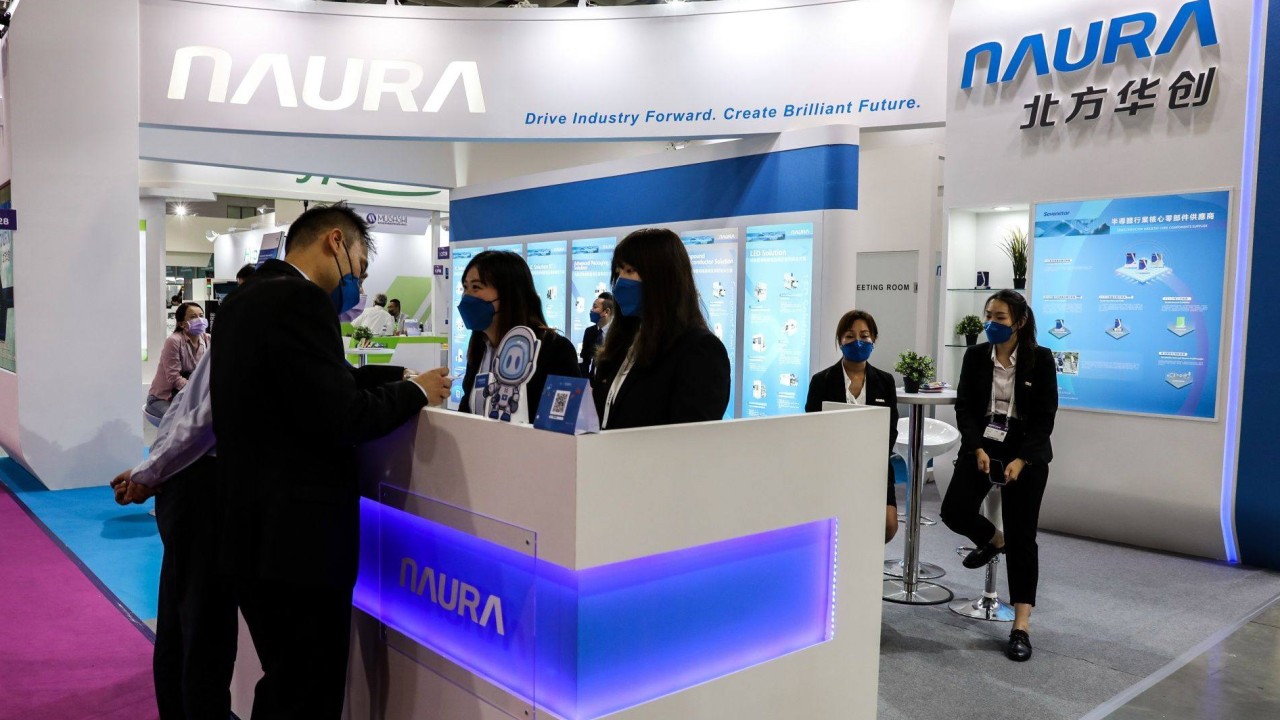
16 Jan Tech war: Chinese chip-tool giant Naura forecasts surge in 2023 sales on strong local demand amid US export controls

State-backed Chinese semiconductor equipment giant Naura Technology Group expects its 2023 revenue to jump by around half from a year earlier, as leaps in its technology helped it gain a larger market share in the country.
The company said in a regulatory filing on Monday evening that its revenue last year is projected to grow between 42 per cent and 57 per cent to 20.9 billion yuan and 23.1 billion yuan (US$2.93 billion and US$3.24 billion).
“[Naura] has made technology breakthroughs and achieved volume production of more than a dozen of semiconductor equipment including etching, deposition and cleaning, and furnace, which help the company to cover more semiconductor manufacturing processes, leading to higher market shares,” Naura said.
Net profits are expected to increase between 57 per cent and 80 per cent to between 3.3 billion yuan and 3.8 billion yuan.
The company said it received over 30 billion yuan worth of new equipment orders in 2023, over 70 per cent of them related to semiconductor-related tools. It did not disclose similar figures in its revenue forecasts for 2022 or 2021.
Beijing-based Naura counts China’s largest foundries as major clients, such as Yangtze Memory Technologies Corp (YMTC).
Lam Research has suspended equipment supply and services to clients in mainland China after Washington tightened US export controls in October 2022.
With foreign players pulling their staff and operations out of China, local chip makers have rushed to find domestic alternatives. The surging demand has helped lift sales of Chinese equipment manufacturers, although most of their products – especially those in advanced nodes below 10 nanometres – are thought to lag in quality.
Advanced Micro-Fabrication Equipment China, Naura’s main rival, has said it expects 2023 revenue to rise more than 30 per cent on the back of strong demand from mainland fabs.
Shares of Shenzhen-listed Naura rose around 3 per cent to nearly 239 yuan in the morning trading session on Tuesday.
